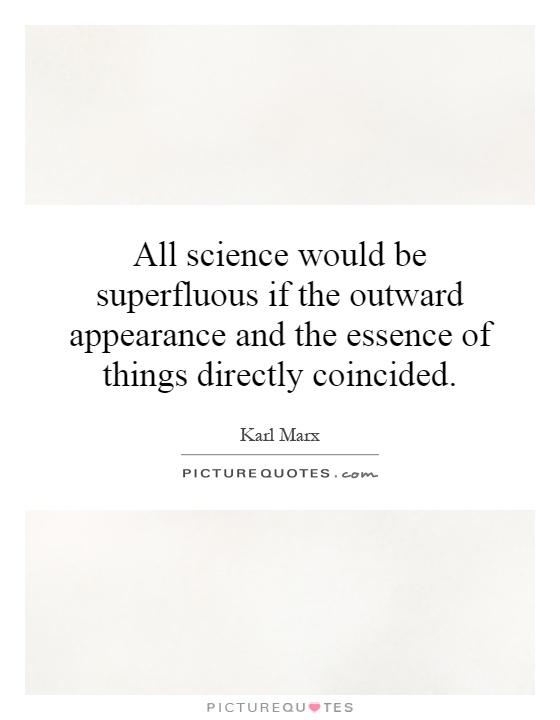All science would be superfluous if the outward appearance and the essence of things directly coincided

All science would be superfluous if the outward appearance and the essence of things directly coincided
Karl Marx, a renowned philosopher and economist, believed that the essence of things often differed from their outward appearance. He argued that society's structures and institutions were often designed to mask the true nature of power dynamics and exploitation. In this context, Marx's statement that "All science would be superfluous if the outward appearance and the essence of things directly coincided" takes on a profound significance.Marx's theory of alienation, for example, highlights how the capitalist system creates a disconnect between workers and the products of their labor. On the surface, workers may appear to be freely exchanging their labor for wages, but the essence of this relationship is one of exploitation and alienation. The capitalist mode of production, according to Marx, distorts the true nature of labor and commodifies human relationships.
Similarly, Marx's analysis of ideology and false consciousness emphasizes how dominant ideologies can obscure the underlying power dynamics in society. The ruling class, Marx argued, uses ideology to maintain its grip on power and perpetuate the status quo. By presenting their interests as universal truths, the ruling class can mask the true essence of social relations and maintain their dominance.












 Friendship Quotes
Friendship Quotes Love Quotes
Love Quotes Life Quotes
Life Quotes Funny Quotes
Funny Quotes Motivational Quotes
Motivational Quotes Inspirational Quotes
Inspirational Quotes